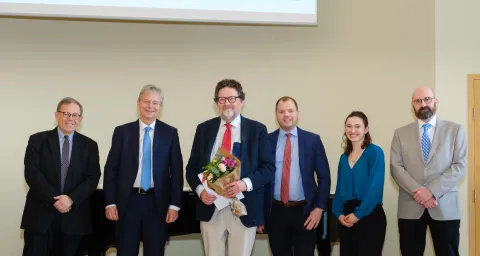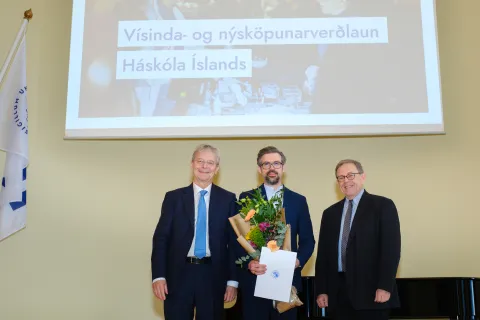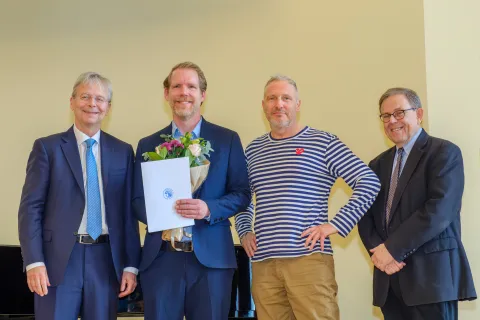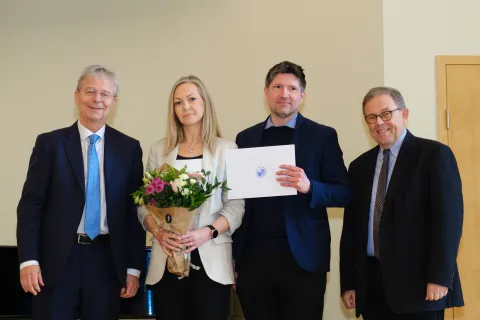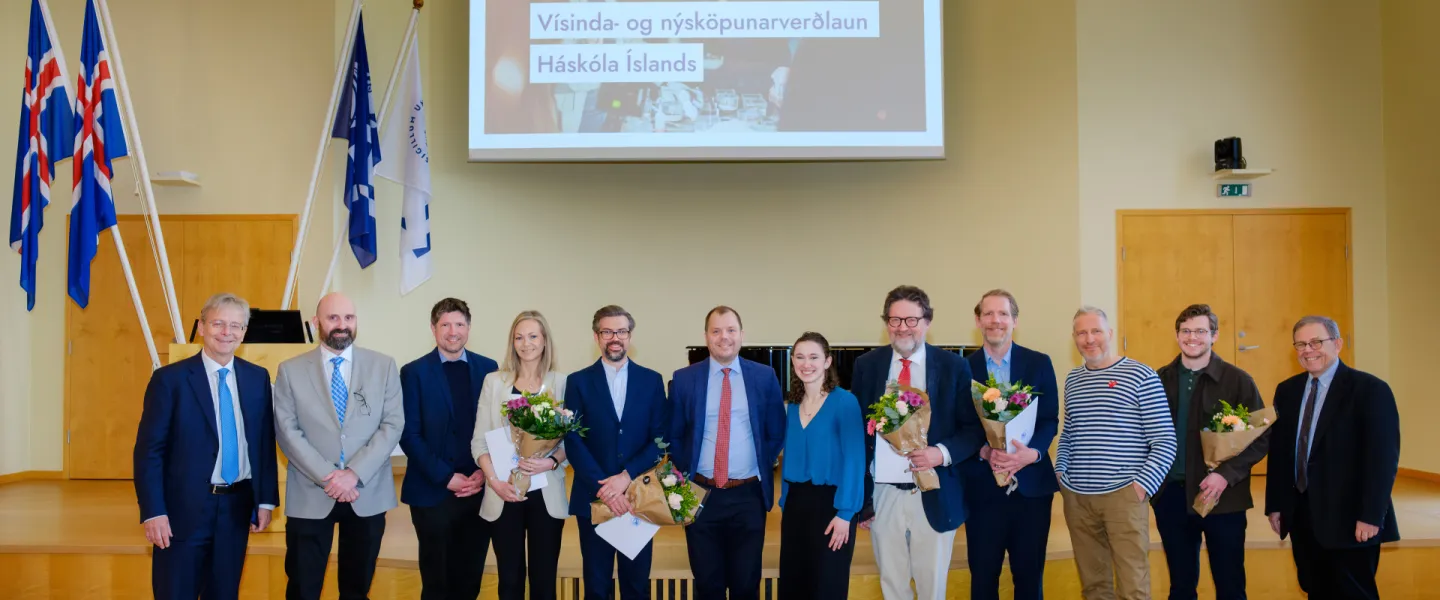
The ProDiGY project, which is developing new technology that provides a systematic, rapid and cost-effective way to accelerate development of drugs to fight serious diseases such as cancer, has won the 2025 UI Science and Innovation Prize. The results of the competition were announced in the Ceremonial Hall in the UI Main Building today. Prizes were also awarded to three other projects: one about blood tests to diagnose Parkinson’s disease, one promoting education and inclusion for pupils of foreign origin in Iceland, and one developing an app capable of analysing finger prints to diagnose rare genetic diseases.
The UI Science and Innovation Prizes were today awarded for the 27th time, although the competition has undergone several name changes over the years. The competition is intended to highlight practical ideas from students and staff at all UI schools which could deliver commercial and societal benefits. It is vital to support innovation because the entrepreneurial sector brings enormous value to the Icelandic economy.
This year, there were 36 entries from across all UI schools. The selection committee looked in particular for novelty and originality, implementation, societal impact (e.g. in terms of the UN Sustainable Development Goals), and projects that were consistent with the University's strategy and supported its mission.Prizes were awarded for the best ideas in four categories: Health, Technology and Progress, Society, and the Motivational Prize. An overall competition winner was also selected from among the prize recipients in the four categories.
